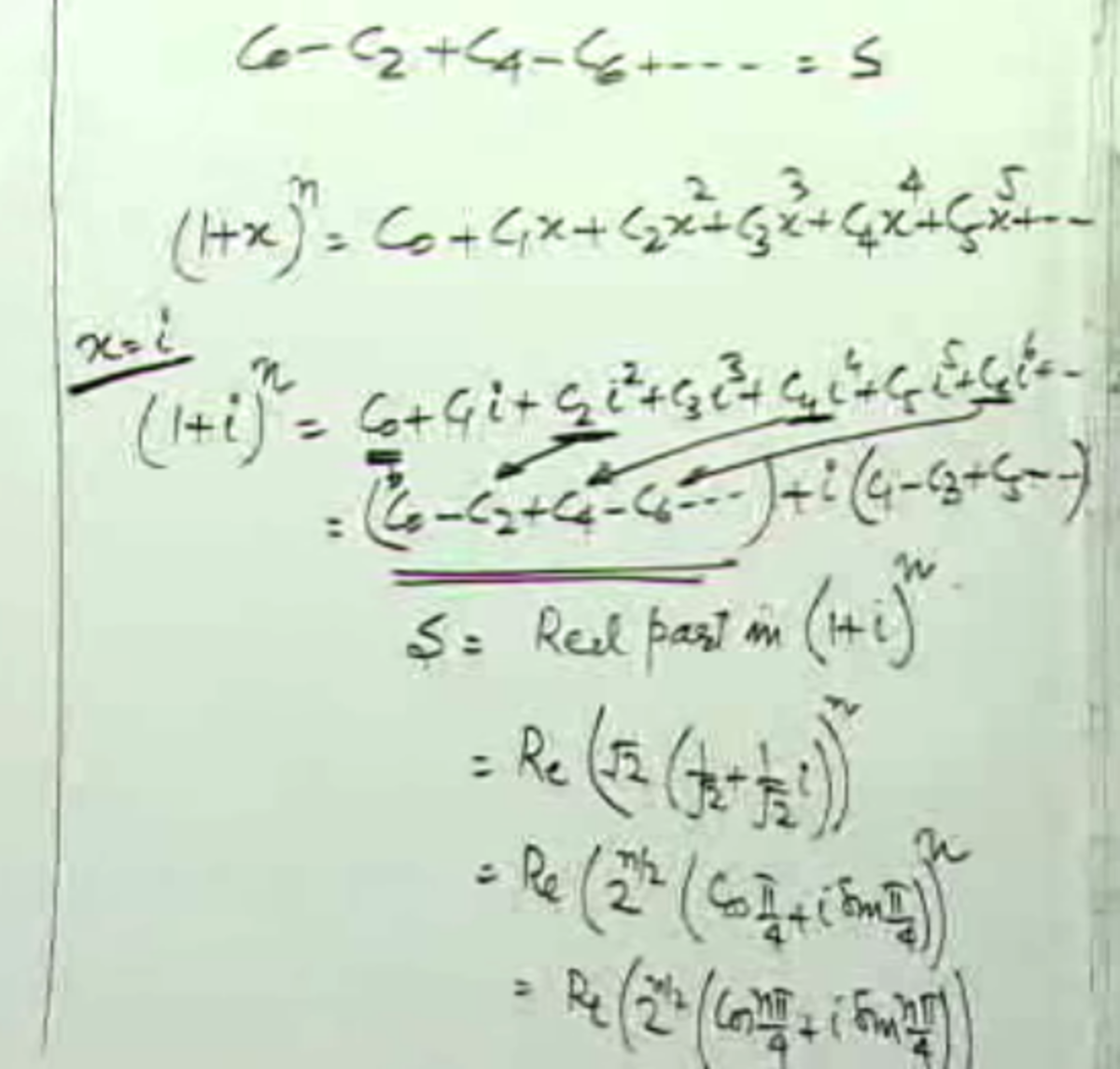Bino-Combi-Turals
k = 0 ∑ 1 0 ( − 1 ) k ( 2 k 2 0 ) = ?
Notation: ( N M ) denotes the binomial coefficient , ( N M ) = N ! ( M − N ) ! M ! .
The answer is -1024.
This section requires Javascript.
You are seeing this because something didn't load right. We suggest you, (a) try
refreshing the page, (b) enabling javascript if it is disabled on your browser and,
finally, (c)
loading the
non-javascript version of this page
. We're sorry about the hassle.
2 solutions
my solution is same too sir !! can we do it by another method ?
Log in to reply
I don't know a better method. I thought you used a different one. I also wanted to show a proper LaTex solution. I edited the problem for you.
plz edit the problem correctly @Chew-Seong Cheong
hello shubham dhull
man missing you on slack

S = k = 0 ∑ 2 0 ( − 1 ) k ( 2 k 2 0 ) Since ( 2 k 2 0 ) = 0 for 2 k > 2 0 = k = 0 ∑ 1 0 ( − 1 ) k ( 2 k 2 0 ) = ( 0 2 0 ) − ( 2 2 0 ) + ( 4 2 0 ) − ( 6 2 0 ) + . . . + ( 2 0 2 0 )
We note that:
( 1 + i ) 2 0 ⟹ S = ( 0 2 0 ) + ( 1 2 0 ) i − ( 2 2 0 ) − ( 3 2 0 ) i + ( 4 2 0 ) − . . . + ( 2 0 2 0 ) = ℜ { ( 1 + i ) 2 0 } = ℜ { ( 2 i ) 1 0 } = ℜ { 2 1 0 ( − 1 ) } = − 1 0 2 4